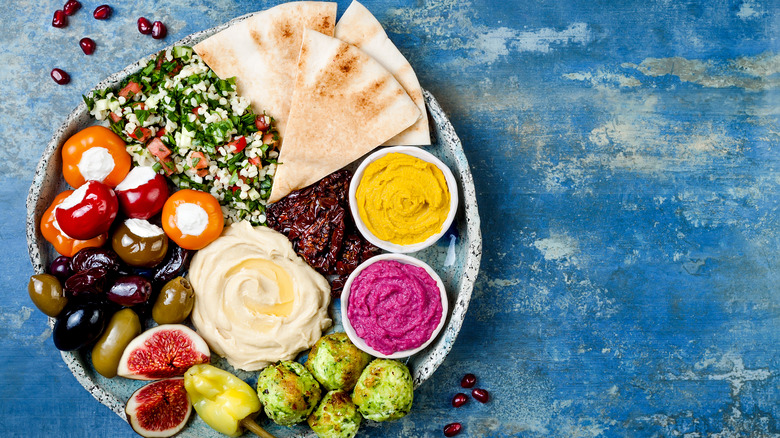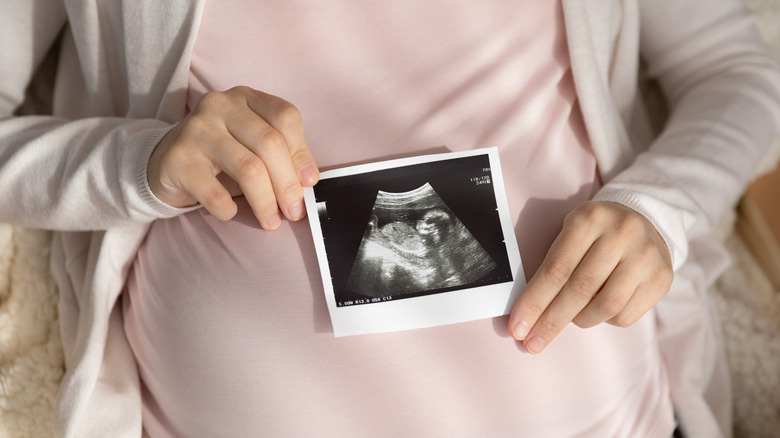Can The Mediterranean Diet Increase Your Fertility?
Everyday Health, U.S. News, and Insider are among the many sources that rank the Mediterranean diet as one of the best for nutrition and weight loss, or weight management. This is due to its plant-based nature. Most of the food consists of fresh fruits and vegetables, nuts and seeds, legumes, whole grains, lean protein, olive oil, and a minimal amount of dairy.
You've known since childhood when your mom and dad withheld dessert until you ate your veggies — arguably the most important food on your plate. The health benefits they offer are what lead many dieticians to recommend the Mediterranean diet over others.
According to Everyday Health, the Mediterranean diet can minimize the risk of heart disease, stroke (in women), cognitive disorders, type 2 diabetes, depression, and certain cancers, among other health benefits. There's even a correlation between this plant-based diet and reproductive health, based on a new study, but can it actually increase your fertility?
How common is infertility, and what causes it?
If you're planning to have a child, your reproductive health is obviously something to consider. Unfortunately, infertility is a common reproductive problem that can put a wrench in those plans. The World Health Organization estimates that infertility affects about 186 million men and women in the world. This means they are unable to "achieve pregnancy after 12 months or more of regular unprotected sexual intercourse."
So can a Mediterranean diet improve fertility? Yes, according to a study published in the Multidisciplinary Digital Publishing Institute's (MDPI) Nutrients journal. But, to understand how the diet can achieve this, it's important to first understand the factors that contribute to infertility in the first place.
There are many causes of infertility. In women, ovulation disorders and endometriosis are a couple of them, as Mayo Clinic explains, and both of these ailments can be caused by the same factor — inflammation. The National Library of Medicine claims "inflammation can affect ovulation and hormone production as well as be associated with endometriosis." Inflammation can also lead to poor sperm quality in men, which is one of the causes of male infertility.
How the Mediterranean diet can improve fertility
If you take a look at a list of anti-inflammatory food examples, like those on Harvard Health Publishing's list, you'll notice that these foods are found in the Mediterranean diet. These anti-inflammatory foods include olive oil, tomatoes, nuts, green leafy vegetables, fruits, and fatty fish. "Anti-inflammatory foods" means precisely what it sounds like — foods that fight inflammation in the body.
Researchers involved in the MDPI study assessed dietary patterns, the inflammatory potential of specific diets, and infertility causes. Simon Alesi, the author of the study and researcher at Monash University in Melbourne, said "the bionutrients in the Mediterranean diet ... are likely to reduce inflammation in the body, thus improving fertility" (via U.S. News).
The study found that the Mediterranean diet contributes to a healthy, regular menstrual cycle while improving the quality of embryos in women and sperm in men. It also improves assisted reproductive technology, such as in vitro fertilization, and has a positive effect on endometriosis.
To recap, inflammation can lead to infertility in both men and women, but the Mediterranean diet can improve fertility, due to the anti-inflammatory nature of the foods it contains. This is why Dr. Alesi recommends the diet to any couples trying to conceive. However, it's important to note that it may not improve fertility for all couples, since there are various causes of infertility. Be sure to consult your doctor first!


